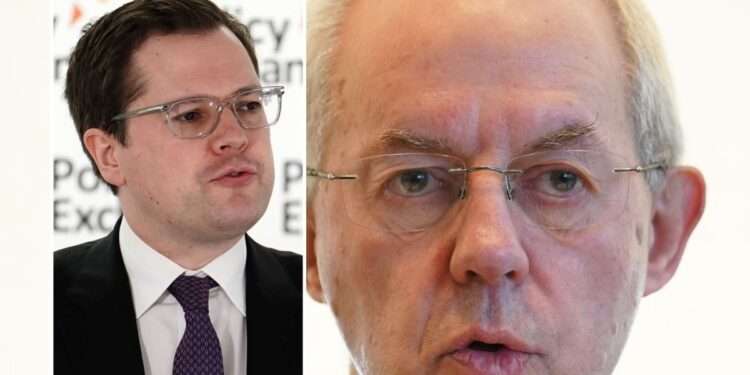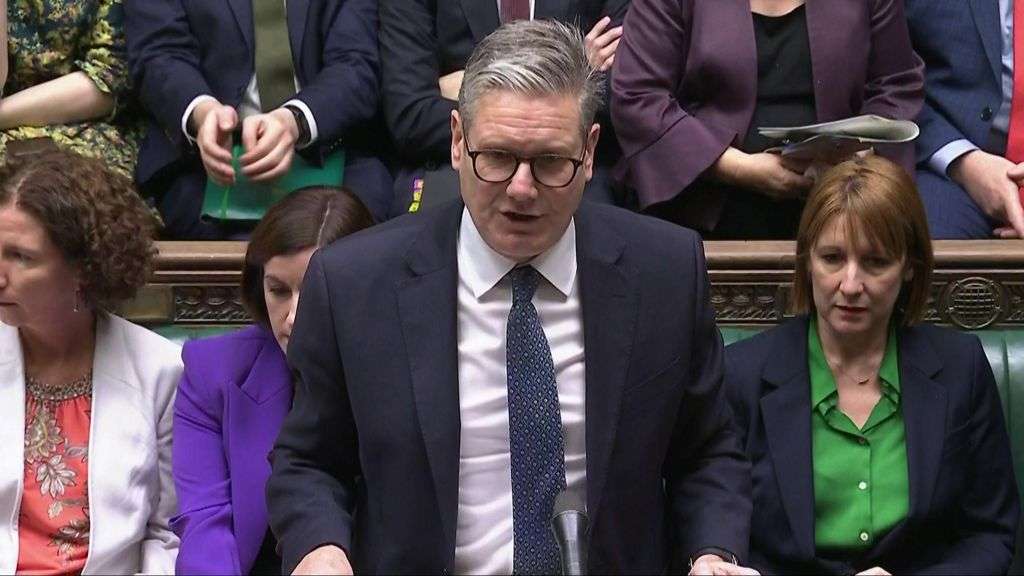Immigration minister Robert Jenrick criticised the Archbishop of Canterbury Justin Welby’s attacks on the UK asylum system, claiming the Church of England could do more itself.
Speaking at a fringe event at the Conservative Party Conference in Manchester, the Newark MP said that there were routes for community groups to sponsor refugees wishing to come to Britain.
Welby has been a vocal critical of the Government’s asylum policies, attacking Home Secretary Suella Braverman of “cruelty” and “harmful rhetoric”.
He has also urged for “safe and legal routes” to be set up to allow migrants to claim asylum in the Britain without attempting to cross the English Channel in small boats.
Addressing his demands at a Centre for Policy Studies event this morning, Jenrick said: “We have a community sponsorship scheme.
“A thousand people have come across on it, but it’s open to anyone.
“Churches, mosques, synagogues, community groups… if they legitimately want to sponsor someone to come to the UK, there is a scheme that is waiting for them there.”
Directly mentioning Welby, he added: “Whenever the Archbishop of Canterbury or anyone comes at us saying ‘we want more safe and legal routes’, well, have a scheme, it’s waiting for you to seize on it.”
Justin Welby had called for safe and legal routes to be set up
Speaking in the House of Lords earlier this year, Welby criticised the Government’s Illegal Migration Bill as “morally unacceptable”.
The Illegal Migration Bill passed into law in July this year.
It seeks to reduce the number of small boat crossings by detaining and removing those from the UK who arrive in that country by illegal means.
Welby had accused the Conservatives’ legislation of being “isolationist” and echoed warnings from the UN Refugee Agency that it could lead to “the collapse of the international system to protect refugees”.
Defending the UK’s record, Jenrick told Tory members: “I do think we have got to be a bit fairer to ourselves.”
He said: “Since 2015, 530,000 people have come into the UK on humanitarian visas.
“That’s more than any comparable period in our history: More than in the Second World War, more than in the 1930s when people were seeking refuge then.
“That is one of the reasons why the system is under such pressure now.”








